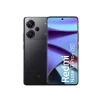 Another exciting year in information technologies lies ahead with a lot of promise for the continued growth of the sector. Below, we provide our thoughts on what we think 2012 holds. It would be great to know what you the reader think in the comments.
Another exciting year in information technologies lies ahead with a lot of promise for the continued growth of the sector. Below, we provide our thoughts on what we think 2012 holds. It would be great to know what you the reader think in the comments.
Mobile money
2011 was the year of the launch of mobile money services in Zimbabwe. The uptake is not clear yet but as the year progresses it will become clear which service will dominate. Econet clearly has the mobile telephony monopoly edge. Despite its Ecocash service being the most expensive to use (even after a price reduction) it has 5.686 million active SIM cards in a market of about 9 million subscriptions. ZimSwitch, the closest contender has an army of banks and the country’s second largest mobile network behind them, all wanting in on the mobile money rush. NetOne, the smallest mobile operator in the country also has is running with a service called OneWallet, whose main hold-down has been the need for subscribers to swap in old SIM cards.
2012 is interesting in that mobile banking will increasingly become a necessity for the everyday man. It will happen faster in Zimbabwe than it has in the rest of Africa precisely because people here have recent memories of (and associate banks with) the mess that became financial services in Zimbabwe during the hyperinflationary period. Many people lost their savings when the central bank revoked bank licenses and, at the height of the hyperinflation in 2009, money in Zim dollar accounts was frozen and hasn’t been released to this day. This aversion to dealing with traditional banks disfavours ZimSwitch Mobile, which, in partnership with the banks, still requires an individual to walk into a bank and sign up for an account.
An effort will be made in 2012 to make mobile money as mobile network neutral as possible especially by ZimSwitch Mobile, which so far requires a new subscriber customer to get a Telecel SIM card. They’ll likely face problems getting Econet, the largest mobile operator, on board fast enough. Econet has 63% of the mobile telephony market and doesn’t ‘need to be nice’ to ZimSwitch Mobile immediately.
eCommerce and mCommerce
The natural result of mobile money is mobile commerce. While most of the mobile money transactions will remain airtime and more local remittances, the convenience for subscribers and retailers to receive payment via mobile money services will become more apparent. Mobile money will also present the means to transact on the web. More thoughts on that in an article we posted a few days ago here.
Basic phones will still rule
Africa is still the land of the basic phone and Zimbabwe is no exception. Even though we would all like to wish this away, the fact is the bulk of the older population still find their basic mobile phones a complete package. This is of course an unpopular reality among techies as most prefer learning and developing cool iPhone and Android apps. The fact remains that basic phones cost just US $15 while the cheapest usable Android smartphone is around $150. This, is what ForgetMeNot Africa gets very well.
It is not to say that feature phones won’t get smarter or that smartphones won’t come down in price. The Huawei Ideos U8150 which we reviewed here last year is priced at under $100 in Kenya for example. This trend will spread to much of Africa, including Zimbabwe. Econet and other companies selling mobile phones will reduce the prices during this year. It’s the only logical way this will go. Otherwise, cross border traders might as well import the phones from Kenya. The low cost Asian imitations in the meanwhile, will be harder to sell and will hopefully start to disappear or just be priced significantly lower.
Cheaper last mile broadband connectivity
Last year saw more and more Internet Service Providers and Access Providers like Aptics, Africom, Brodacom and Aquiva begin to offer Mobile WiMax connectivity as a last mile option for consumers. Forget for a minute the annoying 4G claims, this actually has resulted in an increase in options and massive reduction in price both for the equipment and the service. Now, $50 a month can buy you a connected-all-month multi-user broadband package. It’s no perfect connection, and the price is still far from ordinary-family-friendly but more people that didn’t before can now afford a home connection.
The trend is likely to grow in the coming year as providers look for ways to increase their customer base and competition for the new urban middle class increases.
More information technology start-up activity
2011 saw the launch of new mobile and web properties like Dhiri, Tengesa, Sha, Ribe, iZimbabwe, Zimazon, ZimCarSales, and the continued expansion of the user base of existing ones like Classifieds.co.zw, Dipleague. The mild successes some of these will register will increasingly show geeks, developers, tech entrepreneurs, content creators and (hopefully) some investors, the opportunities that a 72% mobile penetration and the growing opening up of the internet to more people present both locally and even continentally.
The lack of tech skills locally especially software engineering and UI design will become clearer as the year progresses and the techies that see this early and equip themselves will stand out and be rewarded. While the template-installation-experts who gank Joomla templates on the internet and claim they developed the apps will still find space in this expanding ecosystem, it will be easier for the tech community to tell who the real skilled developers and designers are.
From access to applications
Information and communications technology issues locally have been focused on infrastructure and access, hence the coverage, even here, predominantly what the mobile operators and internet service providers are offering. In 2012 it’s going to be more than just the access. Infrastructure will still be topical and key to developments in the industry, but the applications running on these platforms will start to take on more recognition as a means for new entrepreneurs to utilize the infrastructure in ways already proven to work in other markets.
Facebook continues to grow
Facebook has been the amazing and simple tool that has brought ordinary people to the internet, especially the urban population. Unlike search and email, no one needs to understand Facebook to use it. You create an account, find your friends and family, and you start sharing. This is the power Facebook has and it will continue pulling more and more people to the internet in 2012, despite its blocking of Zim businesses from advertising on the platform. As access grows so will Zimbabwe’s Facebook population.




14 comments
Feature phones will still rule, but local phone distributors such as G-TEL/G-TIDE(Controversial, i know but they are moving huge huge volumes) should push basic ones with internet access. I’ve noticed the former company has been doing Qwerty phones with quite capable Java platforms during a time i worked on a project with them. As much as we are against some of the operations by e.g Swav, they determine the fate of startup patterns since they will be used on their platforms.
IF THERE IS ANY ONE WHO EVER DEVELOPED AN APP FOR ANDROID OR WINDOWS PHONE 7 PLEASE POST LINK
Send me a blank email to nerd@smart-apps.co.za
I can invite you to our beta test platform
For all those interested in Adroid dev, start here:
http://www.vogella.de/articles/Android/article.html
”
While the template-installation-experts who gank Joomla templates on the internet and claim they developed the apps will still find space in this expanding ecosystem”
Nicely said!!!!
Im impressed with Tengesa. For the first time something I could appreciate is their simplicity
Ok l am not sure what you mean Nerd my frend looks like they are using a mobile template for PC too, ask yourself whats gonna happen when we have 1000 categories and subcategories its gonna be an endless vertical scroll.The other thinf is once you get into a cat you get into an infinite loop or dead end because there is no way of going back to categories or the main page.